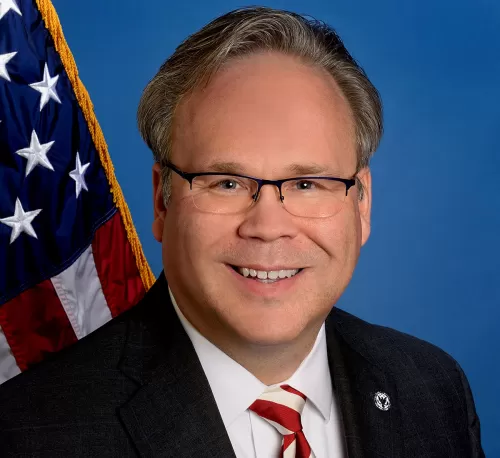NCUA Chairman Todd M. Harper
As Prepared for Delivery on July 22, 2021
Thank you, Scott and Tom, for your presentation on this cutting-edge issue. Before I begin my remarks, I would like to thank Vice Chairman Hauptman for renewing the agency’s focus on the issues of cryptocurrency, digital assets, and other related innovations within the financial services sector. His insights and leadership shaped the request for information we are considering today. As such, Vice Chairman Hauptman, you are recognized first.
Thank you, Vice Chairman Hauptman. And thank you again, Scott and Tom, for your good work on this request for information.
Today’s notice builds on the past work of many at the agency, including former Chairman Mark McWatters, who established the Cryptocurrency and Emerging Technologies and the Fintech Working Groups in 2018. Mr. McWatters saw the potential for these technologies to create greater efficiency within the financial services sector and convenience for consumers. He also saw the need to understand the potential risks that could emerge from their adoption.
Cryptocurrency, digital assets, blockchain, and decentralized finance are no longer solely used in Silicon Valley and high finance. Global markets have quickly embraced these tools, altering the way people perceive and engage in financial services transactions and commerce. The ongoing COVID-19 pandemic has only accelerated the rate of adoption of these products and technologies.
In just over a decade, the cryptocurrency space has exploded to more than 6,000 forms worldwide.i What is more, distributed ledger technology is lowering the costs of transactions and verifying ownership. And, the widespread use of peer-to-peer lending and payment applications means that billions of dollars can cross the country or the world in seconds without a financial institution serving as an intermediary.
While we should recognize and harness the potential opportunities these products and technologies offer, we must also recognize the potential risks they pose to the credit union system and the broader financial services sector and develop appropriate guardrails. There are several concerns associated with these technologies, including Bank Secrecy Act and anti-money laundering compliance, consumer financial protection, equity and fairness, and even potential coverage of these products by the National Credit Union Share Insurance Fund, among others.
The NCUA is not alone in looking at these issues. Regulators across the financial services sector are examining issues related to the benefits, risks, and regulatory treatment of decentralized finance products and cryptocurrencies. Any action that the NCUA Board ultimately takes in this area should consider those efforts, and where possible, our actions should be coordinated with other regulatory bodies to ensure uniformity and prevent regulatory arbitrage.
This notice is the logical next step in laying the groundwork for federally insured credit unions to operate in this arena, but we must recognize that this space continues to quickly evolve. Therefore, any policy related to cryptocurrency, digital assets, and other related technologies cannot come solely from the NCUA. The pace of technological change means that any top-down approach could inadvertently miss the mark or stifle innovation and prevent credit unions from embracing this technology or competing against non-bank actors increasingly gaining market share in areas where banks and credit unions have traditionally operated in.
As such, I encourage credit unions, vendors, and other stakeholders in the cooperative credit system to review this notice and share their views. Tell us how you plan to apply these systems and technology to serve your members and meet business objectives. We especially need to understand what limitations could affect your ability to adopt these technologies and what risks they could pose, so that we can adopt appropriate guardrails to protect the financial well-being of members and the safety and soundness of credit unions.
I am also concerned about the expansion of these services and operations into CUSOs and other third parties, which could pose a significant risk to the broader system without the NCUA having authority to oversee vendors. The continued transfer of operations to CUSOs and other third parties diminishes the ability of the NCUA to accurately assess all the risks present in the credit union system.
To address this issue, the Government Accountability Office, the Financial Stability Oversight Council, and the NCUA Inspector General have all called on Congress to consider legislation to provide the agency with examination and enforcement authority over third-party vendors. I very much agree that we need to close this regulatory blind spot. Without this authority, thousands of credit unions, millions of credit union members, and billions of dollars in assets are potentially exposed to unnecessary risks.
That said, Scott and Tom, the notice you have developed strikes an appropriate balance between understanding the potential benefits of digital assets and related technology and gaining insights into the potential risks these systems may pose to credit unions and where potential safeguards should be developed. Thank you again for your hard work on this. That concludes my remarks. I now recognize Board Member Hood for his statement.
i Source: Coinmarketcap. Accessed July 16, 2021 at https://coinmarketcap.com/.



